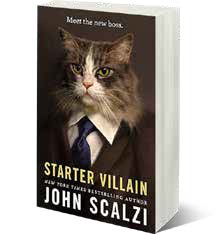WARNING: Do not read ìBlood, Bones & Butterî on an empty stomach: may cause extreme hunger and an insatiable desire to visit Italy. If symptoms last more than four hours, seek travel advice immediately.Memoirs provide insight to different generations as well as the mind and spirit of the writer. But the genre falls flat if the author isnít brutally honest, revealing both their successes and failures in life. Gabrielle Hamilton doesnít hold back. She minces nothing in ìBlood, Bones and Butter,î as she recalls her turbulent adolescent years, wavering sexual identity, a string of dead-end jobs filled with drudgery and her final triumph ñ discovering her true passion: creating gastronomic delights for others.Hamiltonís childhood appeared normal, at least to her, but readers may view it differently. She grew up on the outskirts of New Hope, Penn., where her parents built what she described as a ìwild castleî inside the remains of a burnt-out silk mill. Her father used a portion of the building as a workshop to create backdrops for the Ringling Bros. and Barnum and Bailey Circus. Hamilton fondly recalls playing among the sets and the thrill of the annual lamb roast her father hosted for 100 or more of his circus co-workers.But, as the youngest of five children, Hamilton spent the majority of her childhood clinging to her French-immigrant mother. Following her to the woods, Hamilton learned to identify edible mushrooms, greens and roots. She tagged along when her mother purchased eggs and milk from local farmers, and stood beside the stove as she wielded a wooden spoon, cooking ìthings with tails, claws, and marrow-filled bones.îNo doubt about it, Chef Hamiltonís love affair with good food started right there in her motherís kitchen. There, too, she also learned the most important economic lesson every chef must adhere to if they want to stay in business. Never waste a drop of food: Use those bones for soup broth, turn that leftover bread into croutons, take basic vegetables ñ add spices ñ and create a masterpiece.Unfortunately, the strong bond between mother and daughter that provided a sense of security in Hamiltonís childhood was shattered in the summer of 1979, when her parents divorced. It was then her mother committed an unthinkably cruel act, abandoning her 12-year-old daughter to fend for herself. With her father working in New York City and her mother living in a remote part of Vermont, Hamilton and her older brother survived by eating odds and ends left behind in the garden and pantry. When food, shampoo and other essentials began to run out, so did Hamiltonís love for her mother.Lying about her age, she found a job as a dishwasher in a New Jersey greasy-spoon diner. While the small income kept her alive, it did little for her self-esteem. As might be expected, she quickly sought solace from other sources, including alcohol, cocaine, shoplifting, stealing cars and many other risky behaviors. Needless to say, her future appeared limited before she even entered high school. But take heart ñ bestselling memoirs are never just a continuous string of failures. Adversity is what makes or breaks us, and while Hamiltonís path to success was arduous, she learned a number of essential lessons during those hard-knock years.Shortly after finishing an alternative high school, she set out for Europe armed with a rail pass and a list of French relatives. Over the next 21 months, she sampled the local fare in France, Greece, Turkey, India and Thailand; often alternating between days of feast and famine. This gave her an appreciation for a variety of foods not readily found on supermarket shelves back home, and she discovered the greatest hospitality that a person can offer is a home-cooked meal made from fresh ingredients.These lessons were put to use years later when she opened ìPrune,î her highly successful restaurant in New York City. But first she returned home and spent the next 20 years working for different New York catering companies. Reading her account of that industry was a shocking eye-opener, worthy of another whole book. I wonít go into any detail, but suffice it to say, I wonít be holding any catered parties in the near future. However, her catering stint did prepare her for the grueling hours that chefs and business owners must endure if they want their establishment to flourish.Shortly after opening Prune, Michele Fuortes, an Italian doctor in need of a Green Card, walked into the restaurant and changed Hamiltonís life forever. While their relationship always appeared iffy, he provided what she had been missing since childhood ñ an extended family that actually cared about one another. Hereís what Hamilton said about Alda, her 80 year-old mother-in law, ìI adore her and our summer visits to her home in Puglia, at the tip of the Italian boot heel.î You will, too; this is the appetizing part of the book. Read how Alda makes her own olive oil, turns sundried tomatoes into pasta sauce and has endless recipes for eggplant. You may even be enticed to try making orecchiette, ìlittle earî pasta.When Hamilton attempts to get the recipe for any of Aldaís dishes, she is told each one is prepared ìto the eye.î In other words, the recipe for great family cooking is nothing more than years of experience, combined with lots of love.Hamilton was already a great cook before meeting Alda, but there was still a void in her life. Now she shares Aldaís passion to create culinary delights for her customers and her children. And she hit upon just the right recipe for ìBlood, Bones & Butter.î She combined honest, shocking details with mouthwatering prose to create a worthy read.






